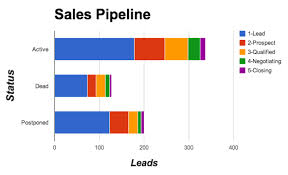 href=”https://sellutions.schulzbusiness.com/wp-content/uploads/2016/01/sales-goals.jpg”>
href=”https://sellutions.schulzbusiness.com/wp-content/uploads/2016/01/sales-goals.jpg”>
Well I did it. I did the “It’s the first of the year and I have put weight loss on my resolution list” thing. Actually I don’t make resolutions but I did set a goal to get healthy. I have committed to eating properly, exercising and stop using the excuse of my travel schedule. How doesn that help your sales techniques?
That being said, on a recommendation of a friend, I tried Weight Watchers. It hadn’t been very long but already I see a difference, a small difference but a difference. Would it be nice to have dropped lots of lbs? Yep but just like in business and in sales, little bits at a time is smarter and has a much better chance for success.
I have heard from many of you telling me that you have set New Year’s resolutions to
include higher sales goals in 2016. A resolution and a goal are two different things. Let’s talk about how you should set goals for yourself.
Begin with your revenue goals. Not necessarily your company’ goals but your own. What do you need to get what you want? When do you want to be able to retire? How much will you need? If you don’t know these answers, you need to meet with a financial consultant and figure it out. Once you understand what you need to reach, add at least 5% because I am sure you have underestimated.
Next you will have to move to your daily and weekly activities. Begin detailing what you need to do every day, week and month to reach these revenue goals. I know you are now asking yourself how do you know what to put down since you probably haven’t tracked your previous activity enough to know what that is. Therefore you need to estimate on what your daily, weekly and monthly activity should be.
After you have guesstimated these numbers you will need to track them every day. You need to do this for at least 90 days to begin to have a true idea of what it will really take to meet your goals.
As long as you meet your daily goals, you will be successful day by day. That’s important. Most people look at the whole revenue goal and don’t break it down into small pieces. It feels overwhelming unless you break it down into small hurdles that can be jumped. If you can find ways to pat yourself on the back every day, then week, then month, you will not only meet your goals but you won’t give up after looking at the whole goal.
So I am not losing 20 pounds, I am eating 23 points a day…and that I can handle.
Greta Schulz is president of Schulz Business SELLutions in West Palm Beach, Florida. She is the best selling author of “To Sell is Not to Sell” with the second edition in 2016. A Florida Sales Speaker Greta does corporate training for fortune 1000 companies and she has an on-line training course for entrepreneurs. For more tips go to: www.schulzbusiness.com



